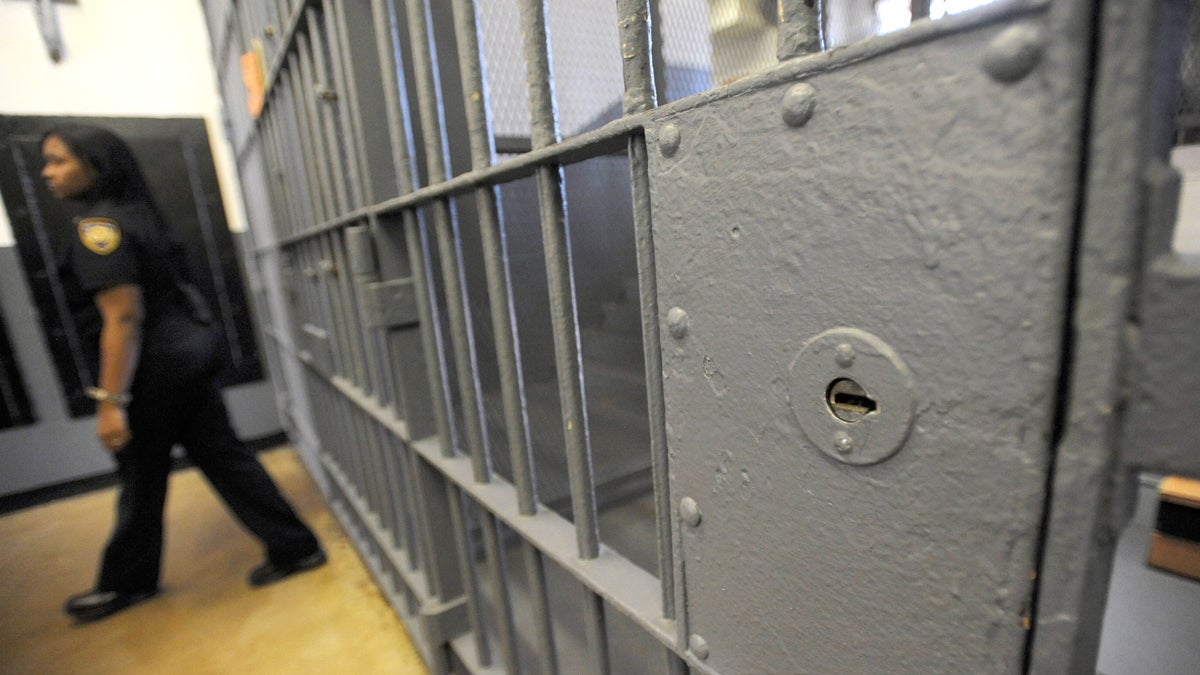Delaware pilot program aims to keep people with mental illness out of jail for ‘nuisance crimes’

(Steve Ruark/AP File Photo)
On Nov. 16, Brett Downes was living on the street and hadn’t seen his probation officer in months. That’s the day he decided to get sober and went to the Rick VanStory Resource Center in Wilmington, Delaware.
“Because I was in a recovery program, I didn’t get incarcerated” for outstanding minor charges, said Downes, 51.
The Delaware Department of Corrections recently granted the VanStory Center $250,000 to pilot a program for people such as Downes – who have high needs but whose crimes are “low risk” to the community — before they ever get to trial. The pilot is based on a Brooklyn, New York, program.
“We see a lot of criminal mischief, criminal trespass, loitering, panhandling, trespassing … kind of crimes where they’re doing things in order to survive, but it happens to be a criminal act,” said Heather Zwickert, supervisor of pretrial intervention for the state’s DOC.
When people are charged with “nuisance crimes” and fail to follow through with proper court procedures, they often end up in jail for the months leading up to a trial. That’s how the court ensures they will show up.
“They may wait in pretrial detention for months … and they haven’t really received services to meet their needs,” said Robert Coupe, DOC commissioner. Coupe said the pilot program will help people get services for addiction, mental health issues and housing – and avoid punishment for not following court procedures.
It’s also expected to lighten the load of parole and probation officers in New Castle County, where the pilot is based. According to Zwickert, the five officers in that county oversee 244 “low-risk” offenders who could qualify for some form of pretrial intervention. For the whole state, that number is 347.
Peer support and a ‘one-stop shop’
The Rick VanStory Resource Center uses a peer support model, training and hiring out of its client pool. Clients such as Brett Downes get help from people who have “been there, done that,” said Ronald Beard, who will run the pilot program.
The DOC said this aspect should make a difference in getting people to stick to a treatment plan.
“It’s one thing for a probation officer to tell you things, it’s another thing for people who’ve been where you’ve been and improved, tell you things,” said Zwickert.
And, since the center offers case management, classes and housing under one roof, officials can avoid what Beard calls “empty referrals” to services that people don’t use.
“We’re trying to create a one-stop shop thing,” said Beard. Beard said the program will involve individualized plans for each client, and three different tracks – one to help with addiction, one for serious mental illness and one for people who have needs but don’t fit in the first two categories.
The DOC, still in the process of finalizing criteria for the program, has not disclosed a start date.
According to National Alliance on Mental Illness Delaware, about 1,000 of the 5,500 people in Delaware’s combined prison system have a mental illness.
WHYY is your source for fact-based, in-depth journalism and information. As a nonprofit organization, we rely on financial support from readers like you. Please give today.

